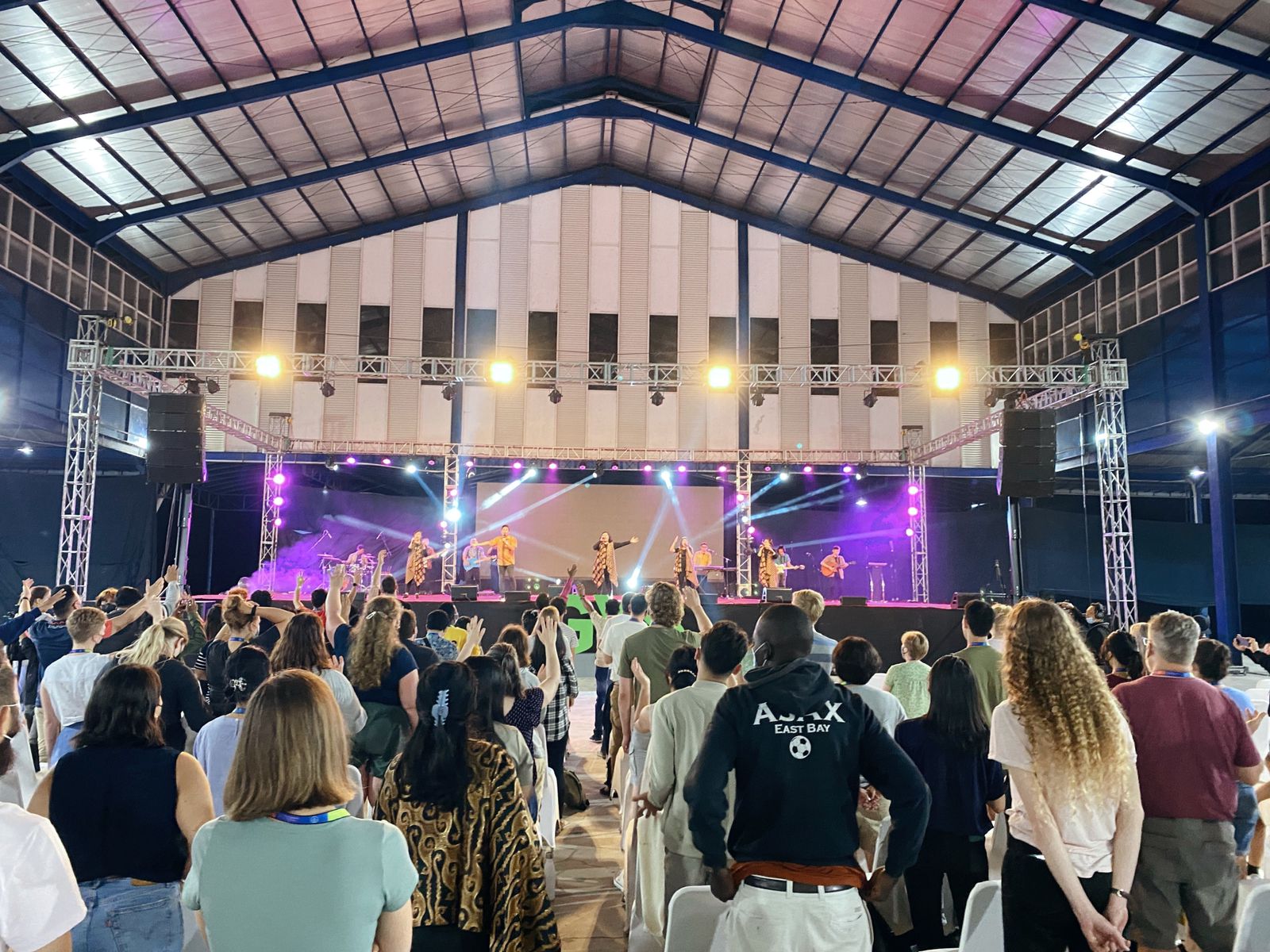Canada
It was 20 years ago when my husband and I were mourning the messy demise of our church, which had destabilized during the renewalism of the 1990s.
I felt both cynical and yet wistful, regarding the charismatic. In search of sanity, stability and solid teaching, a nearby Mennonite Brethren church caught our attention. Could this be home?
Inwardly, I winced. I did not want to give up the adventurous rush of the prophetic, the ecstatic peaks of worship, the intensely personal encounters in prayer ministry. The fun.
Some of my peers made their way to the nearest Pentecostal church, only to complain about the lack of sound teaching. Others went mainstream evangelical, only to complain about the lack of Spirit-infused life. Were we doomed to join some secretly seething remnant of disgruntled spiritual elitists who did nothing but complain in whatever church they found themselves?
We prayed, we took a deep breath, we went MB.
It was not what I expected.
Charismatic Anabaptists
That first Sunday I saw hands raised in worship, elders offering prayer and a strong community focus that challenged my self-absorption. The pastor had also just returned from a YWAM experience with a desire to see the Holy Spirit move in his church. Closet Pentecostal? Nope. Mennonite Brethren.
The Mennonite Brethren church was birthed 155 years ago, offspring of an unlikely marriage between a staunch Mennonite ‘mother’ and a more charismatic ‘father’ (a hybrid of German Baptist and passionate Lutheran Pietism); their union produced an unwieldy lovechild prone to literal jumping for joy.
Early Brethren were an evangelistic force to be reckoned with, focused upon an intensely personal experience of God.
‘Menno Mom’ was a little taken aback. She waited to see what would happen; when sensuality and sin emerged, she clamped down on excess emotionalism with a heavy hand. Since then, her jumping child has been significantly more restrained.
But in Canada, some MB toes are twitching. What gives?
Spirit-filled diversity
It was only in the late 19th century that Canada actively encouraged immigration from outside the sphere of white, Englishspeaking Europeans. A post-WWII economic boom then led to broadening the palette of acceptable immigrant hue to include Asians, Sub-Saharan Africans, and South Americans. The Canadian MB church – having sent missionaries abroad for years – began to engage the diaspora on their doorstep, resulting in ethnic ministries within churches and the planting of ethnospecific churches.
Metaphorically, the ecclesial potluck had theological dim sum, papadum, and tortilla added to the farmer sausage and platz.
Despite long-held misgivings regarding traditional Pentecostalism, atrophied MB “jumping” muscles flexed under the subtle but increasing influence of those from the Global South, where Pentecostalism is a dominant expression of Protestant Christianity. Today, that charismatic influence is like a sparking flint in search of well-laid logs, and within the wistfully warm but solidly constructed MB hearth lie embers of the fire that once birthed us.
Some churches ignite, some – like ours – do a slow burn.
Twenty years have passed since our first MB Sunday. Recently, the current lead pastor confessed his longing for renewal. He identified the missing element in his life – already rich in prayer, the Word, and community – as risk. In fall of 2021, he launched a sermon series on the gift of the Holy Spirit, catalyzing us toward charismatic expressions that would honour MB theology and values.
What does that look like?
Imagine: dynamic contemporary worship with carefully chosen lyrics that express ancient truths; subjective spiritual insights discerned through a community hermeneutic; diverse stances on theological non-essentials meeting with neither hostility nor avoidance; radical social justice initiatives championed by radical peacemakers; the Word preached boldly but with humble acknowledgement of Scriptural ambiguities; prayer that is audacious yet eschews transactional agendas; spiritual gifts caught and taught through intentional training, and space for personal encounters with God through prayer ministry.
When the brightest and best of global Pentecostalism merges with brightest and best of MB heritage, hopes should soar. What better context in which to become a people who will not only engage in renewal, but pastor it well?
—Nikki White is a writer with MULTIPLY (the international Mennonite Brethren sending agency), and author of Identity in Exodus. She attends North Langley Community Church in B.C., Canada, where she oversees curriculum development and training for prayer ministry.
